Have You Met... Annelie Lütgens
Have You Met... Annelie Lütgens
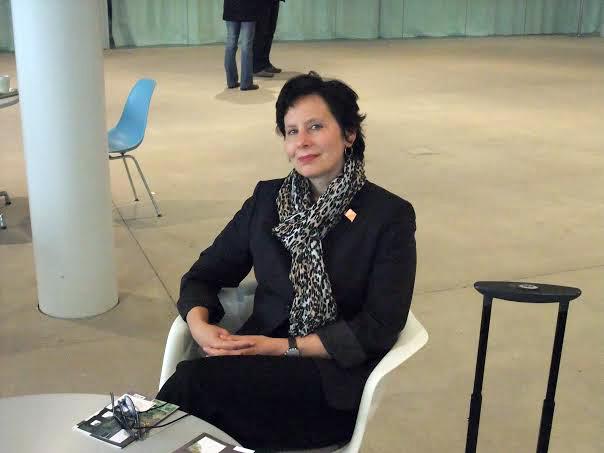
Annelie Lütgens, the curator of the exhibition "Dorothy Iannone. This Sweetness outside of time. Paintings, Objects, Books 1959-2014", spoke with us about Dorothy Iannone and her outstanding retrospective which opened last week in Berlinische Galerie.
What can the audience expect to see at Dorothy Iannone's retrospective exhibition at the Berlinische Galerie in the upcoming months?
Annelie: The retrospective shows an overview of the multimedia work of Dorothy Iannone. We are starting at the end of the fifties with her Abstract Expressionist work, and then going through the sixties where her work became more and more figurative, personal and sexual. This process can be followed through the exhibition. You can see not only paintings and drawings with texts and narrative, but also video boxes, for example. In the mid-seventies, she started doing videos, but not as a pure form. She combined it with painting and she built big, richly painted boxes, which she integrated the monitor in to. There are a lot of different objects in this exhibition, such as the figures on wood - a kind of cut-out. Then there are the singing boxes where Dorothy is doing some storytelling and singing. We also have a roulette table, stools, and chairs she painted on. There is a wide variety of media and objects.
There is also an object made by her mother.
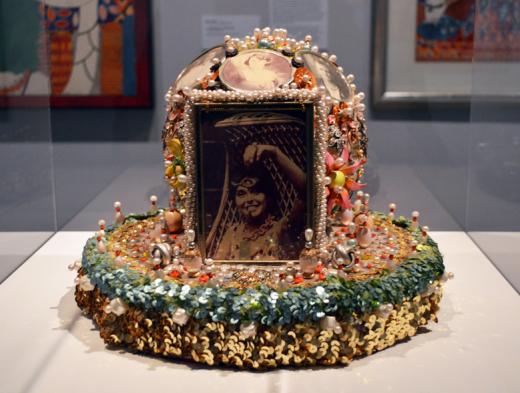
Annelie: Her mother, who has Italian roots, made objects from styrofoam richly covered with pearls and sequins. She made these objects to celebrate her daughter. She was sending them from time to time to her. We have one of these objects, with integrated photographs of Dorothy, her mother and grandmother, here in this exhibition. Dorothy also dedicated some of her paintings to her mother.
Were there any earlier attempts of doing such an extensive retrospective of Dorothy Iannone's art?
Annelie: This is the first as big as this. She actually did not have a lot of exhibitions in her life. NGBK made an exhibition of her work in 1997, and there were some smaller group shows, but a retrospective that is highlighting her early work has not been made in Berlin. The Berlinische Galerie is exhibiting a wide range of her work from the late fifties to the present.
Why do you think it took so long for Dorothy's work to become so widely appreciated?
Annelie: Because her subject is for some people still provocative. She is dealing with love and sex, and this is sometimes difficult for an audience. And there has also been some censorship of her work. This is partly the reason why she hasn't been that much in focus.
What was the reaction of the audience to her work throughout her career?
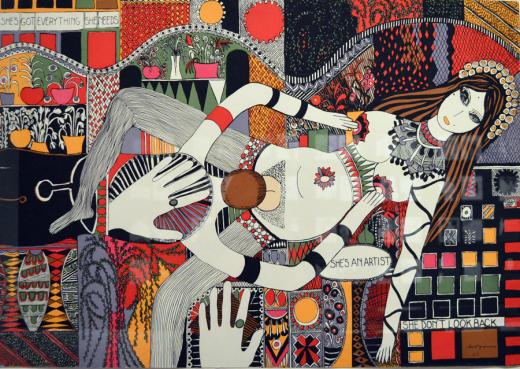
Annelie: When she started, she started as an abstract painter. She was in New York in the end of fifties and mid-sixties. She had a kind of audience that was trained for seeing abstract art. But in the late seventies, when her figurative work was growing and she was dealing with sex topics, it was a time of free love, sexual revolution, hippies and so on, and people loved that. But on the other hand, it was partly also forbidden. Although the society was changing and becoming more liberal, there was still censorship of certain topics and her work was not supposed to be shown.
How do you see her compared to her contemporaries?
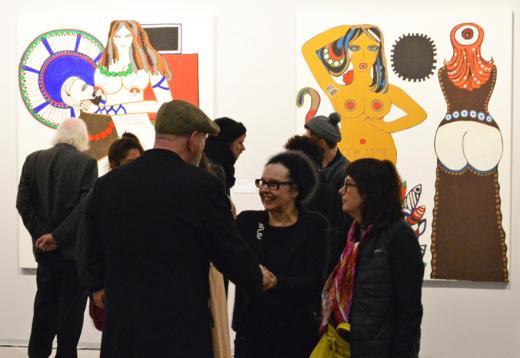
Annelie: It is hard to compare her. In the seventies, when female artists like Judy Chicago and others began to enter the mainstream of the American art world, there was a certain kind of women power and she was one of those women artists, but at the same time she was very particular because her work was also dedicated to men. She loves men and she was celebrating men, which was the topic more-or-less forbidden in the feminist world in the seventies.
What would you like to reveal about Dorothy Iannone and her work with this show?
Annelie: I would like to show her enormous positive energy and lively approach to art and life. It is really art for good feelings.
In what way is Dorothy a pioneering artist?
Annelie: She is pioneering in being very personal in her art. She has no fear of showing her feelings, of putting her private and sexual life into her art.
Dorothy's art is very liberated and uncompromised. Is her artistic expression coming from her way of life?
Annelie: From her way of life and from her way of seeing life in general. She is an open-minded and open person. She does not want to have any limits in expressing herself.
Do you think her art is (still) important in terms of feminism?
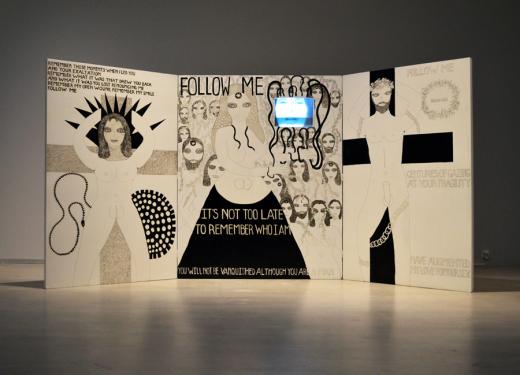
Annelie: It could be. Her art is not ideological. You can learn, as a young woman, that you can stand to your needs, to your love, to your sex. There is a nice phrase in one of Dorothy's work, the „Follow Me“ video box. She is a white goddness speaking to men. She says: „It's not too late to remember who I am. You will not be vanquished although you are a man“. This is really a phrase that is very actual. This kind of message is as important as it was in the seventies. Her approach to love, sex, and to the world is also kind of a universal thing. It is not only personal. She is not every time talking about herself. She is talking about women in general and she encourages women.